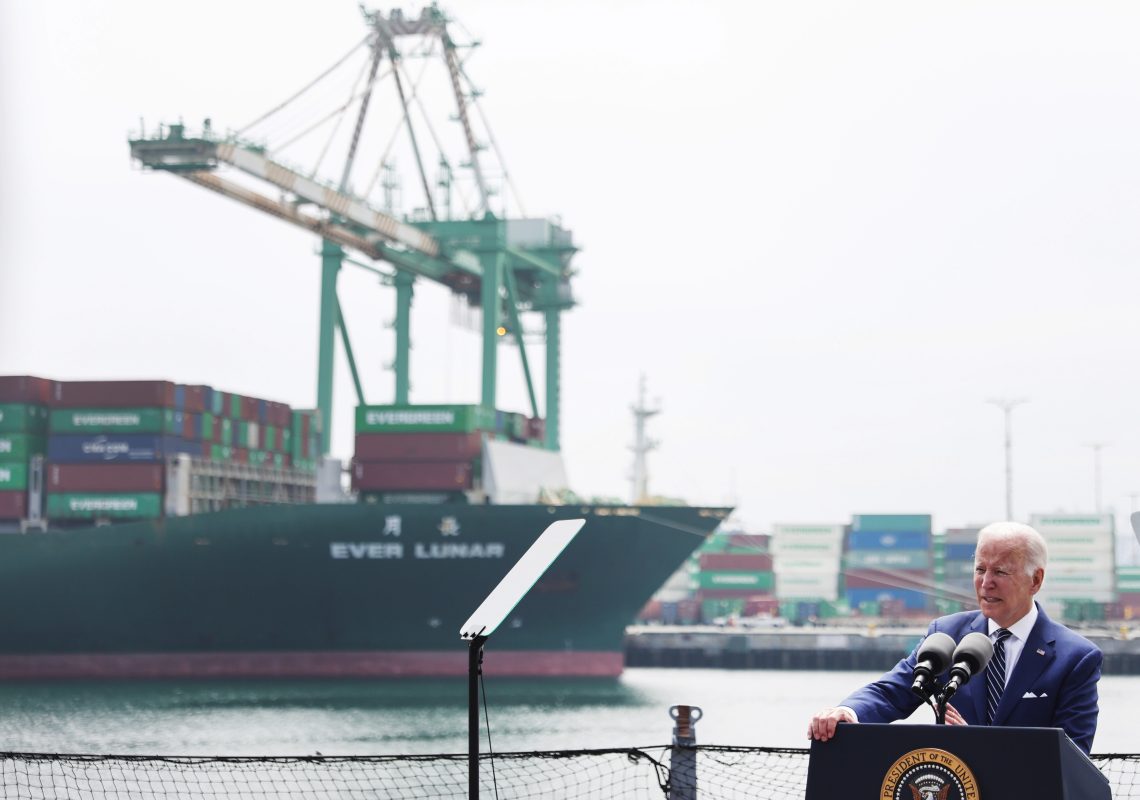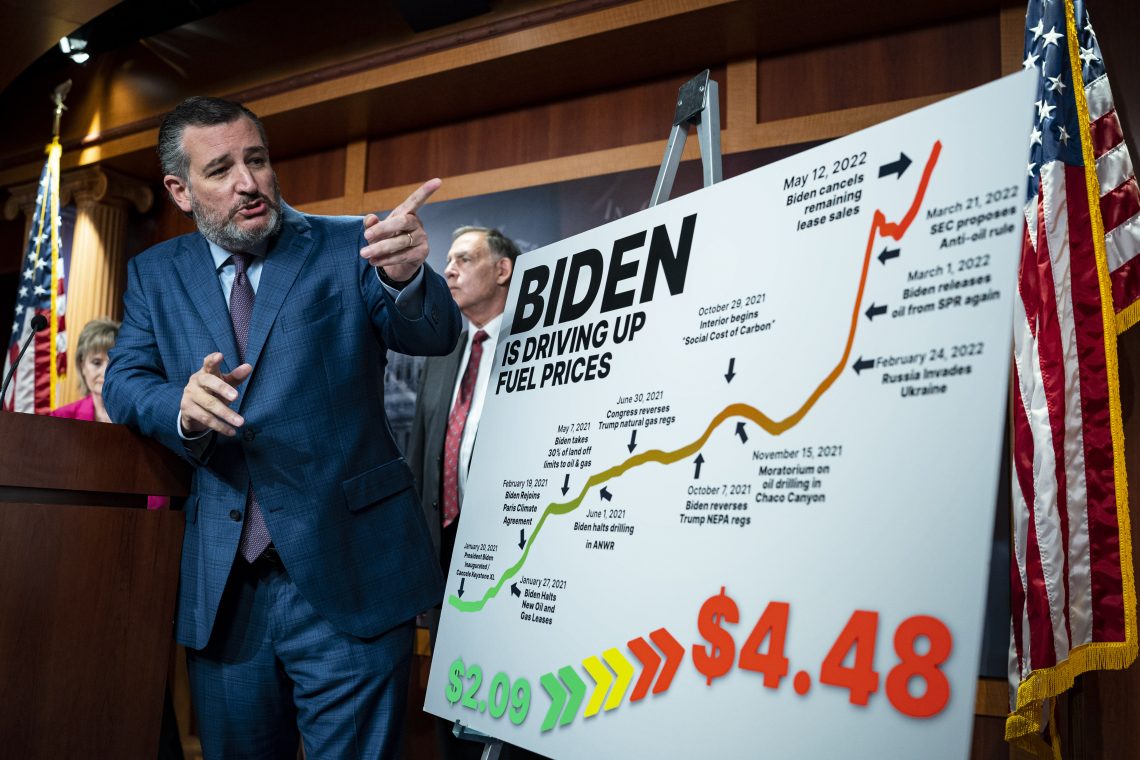U.S. foreign policy after the midterms
Midterm elections are unlikely to upend American foreign policy, but they could predict future shifts.

In a nutshell
- U.S. foreign policy has become more intertwined with domestic politics
- Still, there is continuity on major issues, including support for NATO
- Significant Republican gains could foreshadow future developments
The highly anticipated midterm elections in the United States will likely not result in decisive foreign policy shifts. While there is every expectation that a Republican-controlled House or Senate will scrutinize administration policies more intently, this effort would not necessarily lead to major and immediate changes in the American approach to foreign affairs.
Congressional action could presage new policies if a Republican candidate is elected president in 2024. Most clearly, the areas of contention will be climate and energy policy, international organizations, border security and Latin America, as well as the Middle East and foreign aid. Meanwhile, more continuity and convergence can be expected in defense and with European and Indo-Pacific policies.
At the water’s edge
The long-term shifts in the overall foreign policies of the two major U.S. political parties reflect contemporary political changes. The post-World War II mantra that American politics “ended at the water’s edge” was largely an expression of the anti-communist Cold War consensus and the wide range of opinions on foreign affairs held by both Democrats and Republicans. For most of the Cold War, both parties contained their share of hawks and doves. During the Vietnam War, prominent and influential opponents and advocates of U.S. involvement could be found in both parties and in both houses of Congress.
In the 1990s, the two political parties in Congress became more homogenous. For instance, traditional “Blue Dog” Democrats, Southern politicians that were liberal on domestic issues but tended to be more hawkish on foreign policy, began to disappear.
The most likely scenario, despite recent controversies over the Russian invasion of Ukraine, is that the midterm elections will be dominated by social issues.
As a result, today foreign policies tend to be viewed more as an extension of domestic politics. Hence there are more dramatic shifts with changes in control of the executive, which has significant authority in matters of national security and foreign affairs. This dominance is amplified when the president’s party also controls one or more houses of Congress.
It is rare that presidents are so politically weakened that Congressional opposition can drive policies in a radically different direction. President George W. Bush, for example, managed to sustain his controversial approach to counterterrorism and the wars in Iraq and Afghanistan despite fierce scrutiny and opposition in Congress.
The result is that contemporary U.S. foreign policy “flips” more visibly than in the past when control of the White House passes from one president to another.

There is still significant continuity in foreign affairs. Support for NATO, for instance, remains a cornerstone of American foreign policy for every post-Cold War president, including Donald Trump. But there were also dramatic changes – for instance, the radically different stances on climate and energy policy under the Obama, Trump and Biden administrations.
Current and future policies
If the Democrats lose control of one or both houses of Congress, which many see as likely, the expectation is that this will not result in dramatic shifts in U.S. policy in the near term.
That said, Republican authority will result in the more aggressive use of Congressional tools in attempting to balance or shape the direction of national policies. These instruments include advice and consent on political appointments, investigations and oversight and the approval of treaties.
What is more likely is that Republican-controlled Congressional action will signal the course a future Republican president might take if the party regains the White House in the 2024 national elections.
The Republican agenda will very likely be dominated by the conservative wing of the party. The most prominent areas of Republican legislative effort will likely include the following:
Energy and environment. Republicans will work to undermine the “green agenda” and a shift away from oil, gas, coal and nuclear power. In particular, they will pave the way for a future conservative president to withdraw from the Paris Accords. They will press for increased production and reliable, affordable, abundant energy supplies and dramatically increased exports.
Border, immigration and Latin America. Republicans will work to reverse President Biden’s border policies and lack of enforcement of immigration laws. They will reject the administration’s argument that illegal migration is driven by “root causes” in Latin America. They will press back against engagement with Cuba and Venezuela. They will want more focus on battling the cartels.
There is virtually zero chance that the administration would be able to ratify any controversial agreement.
International organizations. Republicans will be more skeptical of international organizations and, in particular, of Chinese influence in these structures. There will be zero support for a World Health Organization pandemic treaty.
Middle East. Republicans will seek to undermine efforts to reinstate the Iran Deal and remove sanctions on the Tehran regime.
Foreign assistance. There will be more deliberate efforts to foster accountability and reduce fraud, waste and abuse, and more reluctance to use these programs to advance liberal social issues.
Scenarios
The most likely scenario, despite recent controversies over the Russian invasion of Ukraine, is that the midterm elections will be dominated by social issues. The Republicans will make significant gains and will focus on domestic issues: the economy, spending, and immigration and border security.
There will remain areas of continuity, despite the differences between the two parties. There is general consensus on tougher China and Russia policy, support for NATO and adequate defense spending.
Republican Congressional leadership will likely focus on the myriad of issues where the president is deeply unpopular with voters, including the economy, crime, and social issues.
There is virtually zero chance that the administration would be able to ratify any controversial agreement such as the UN Convention on the Law of the Seas, a pandemic treaty, a new nonproliferation treaty, or a new Iran Deal.
Without strong Congressional support, it is unlikely the president will be able to muster momentum for new foreign policy initiatives. Further, it is doubtful that the White House could introduce adjustments in foreign and security policies that would improve chances for President Biden’s party to hold the White House in 2024. At best, the administration will muddle through on its current course. To friends, allies and enemies, U.S. policy will appear tentative, at times contradictory, and incremental.







